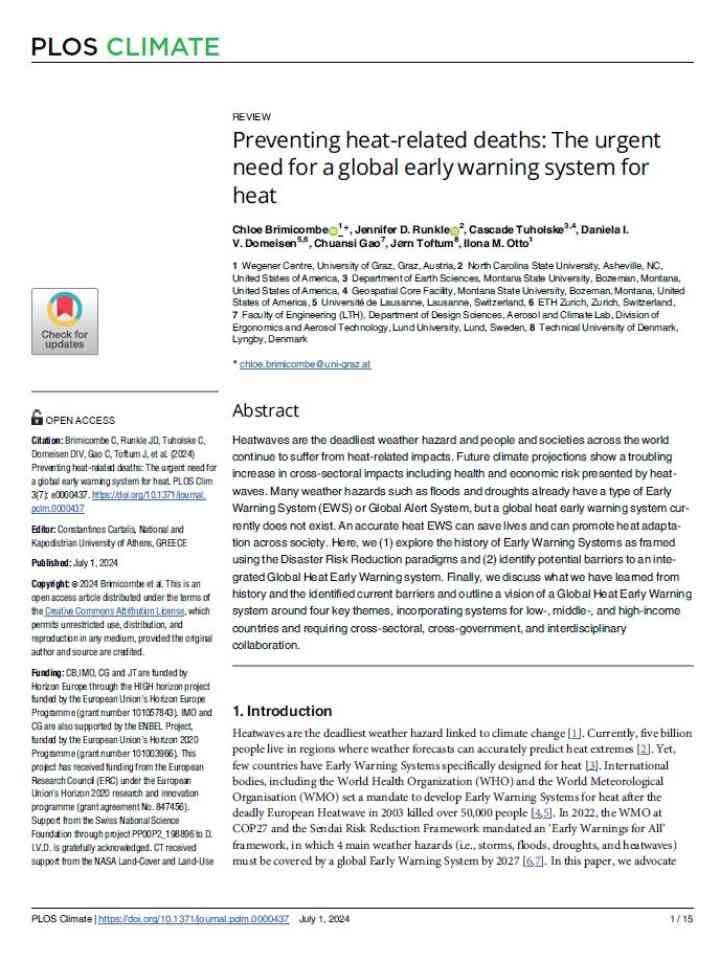Preventing heat-related deaths: The urgent need for a global early warning system for heat
This study explores the history of Early Warning Systems as framed using the Disaster Risk Reduction paradigms and identifies potential barriers to an integrated Global Heat Early Warning system. Heatwaves are the deadliest weather hazard and people and societies across the world continue to suffer from heat-related impacts. Future climate projections show a troubling increase in cross-sectoral impacts including health and economic risk presented by heatwaves.
Many weather hazards such as floods and droughts already have a type of Early Warning System (EWS) or Global Alert System, but a global heat early warning system currently does not exist. An accurate heat EWS can save lives and can promote heat adaptation across society. This paper also discusses what has been learned from history and the identified current barriers and outline a vision of a Global Heat Early Warning system around four key themes, incorporating systems for low-, middle-, and high-income countries and requiring cross-sectoral, cross-government, and interdisciplinary collaboration.
Explore further
